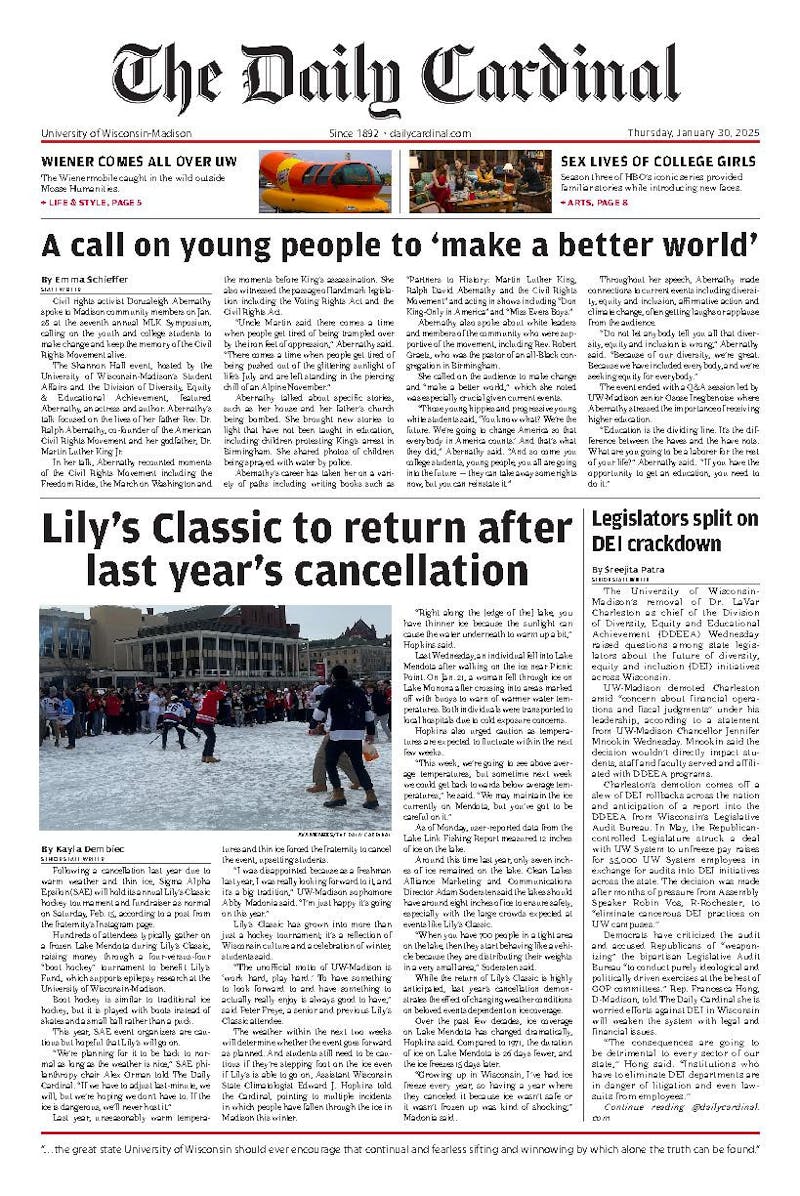The Wisconsin Department of Transportation’s 2015-’17 budget request, released Friday, has sparked considerable debate, especially regarding a new $50 fee for registering hybrid and electric vehicles.
The fee is meant to tax drivers for highway and road services that are usually paid for by gasoline taxes, which do not reach the drivers of “green” vehicles, Kevin Traas, the director of transportation policy and finance for the Wisconsin Transportation Builders Association, said.
The funding initiatives set forth in the budget will ensure continued safety and efficiency for the state’s highways, according to John Rathke of the American Council of Engineering Companies of Wisconsin.
However, the tax is viewed by other experts to be a punitive measure, disincentivizing the purchase of environmentally friendly vehicles.
UW-Madison professor Calvin DeWitt, of the Nelson Institute for Environmental Studies, said though recent developments in national policy, such as the Recovery Act of 2011, have encouraged the manufacture and purchase of hybrid and electric vehicles, the DOT’s budget appears to contradict such policies.
“To punish [hybrid car drivers] is completely backwards,” said Elizabeth Ward, conservation programs coordinator for the Sierra Club—John Muir Chapter.
Ward pointed to the influence of the “highway lobby” as one factor contributing to the DOT’s emphasis on continued highway expansion, even in the face of declining car transportation. With such a focus on highways, Ward said the DOT “forgot they’re supposed to be about transportation infrastructure.”
However, DeWitt does not attribute the dissonance between national and state policy simply as an act of conscious anti-environmentalism on the part of the DOT. Instead, DeWitt drew attention to the structural organization of government, with increased “departmentalization” rendering DOT Chairman Mark Gottlieb unable to reconcile budgetary concerns with the greater goals of the state.
DeWitt said a reduction of dependence on foreign oil and increase in energy independence can be achieved only by utilizing transportation alternatives that do not rely on carbon-based fuels. While the registration fee of hybrid and electric vehicles may achieve the goal of raising state revenue, there must be consideration of bigger objectives when crafting the budget, DeWitt said.
The responsible stewardship of a state’s financial resources and its natural resources should always be the aim of government, DeWitt added. The punitive nature of the registration fee discourages the kind of environmentally conscious actions that government should work to promote.
Buying a hybrid or electric car “shouldn’t be penalized, it should be applauded,” DeWitt said.





